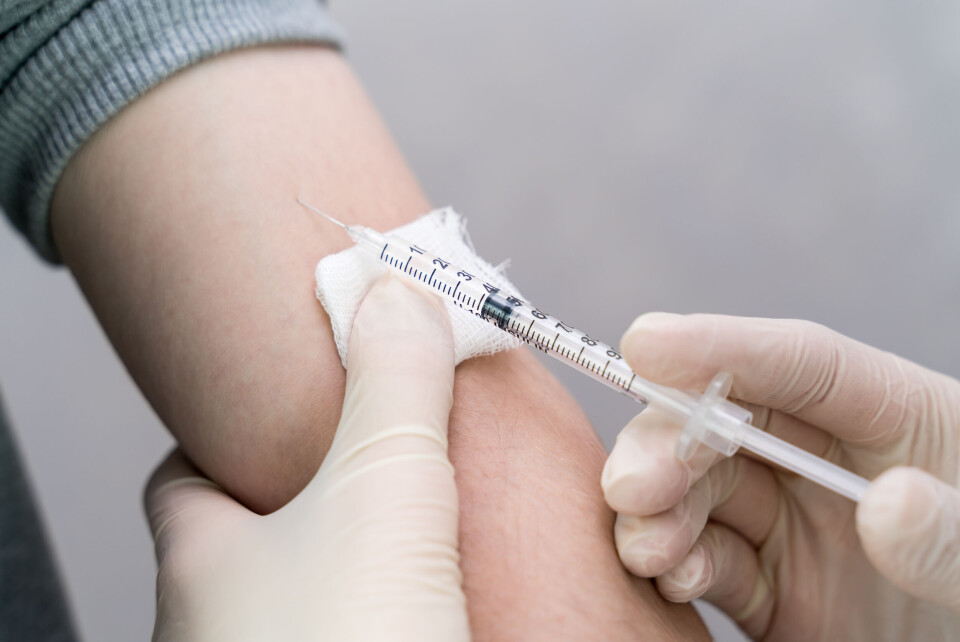-
Two Britons killed in avalanche in French Alps were with an instructor
French skier also died in the disaster at Val d’Isère on Friday February 13
-
British Airways launches bargain £2 flights to France (but there’s a catch)
The flights are only available to members of the airline’s Avios scheme who are redeeming loyalty points
-
Pistes closed, confinement orders: Alpine resorts deal with avalanche risk
Increased snowfall this weekend may cause further closures as busy school holiday season continues
Institut Pasteur’s new Covid report: 4 key predictions for France
The most recent modelling from the Paris researchers suggests that lifting all restrictions and current levels of vaccination could cause hospital pressure and a greater risk to younger people

Hospital pressure, less protection from vaccination, and more risk to teenagers and children; these are some of the major findings from the latest Institut Pasteur modelisation of Covid in France.
Overall, the most recent modelisation from the Paris institute has said that current vaccination rates in France may not be enough to prevent another more virulent wave in the coming months, and predicted that as many as 5,200 people could be admitted to hospital per day by winter.
Read more: Fifth Covid wave and lockdown possible in France says Institut Pasteur
As la rentrée continues in full swing, we explore the four key takeaways from the report in more detail.
1. Non-vaccinated people will pile pressure on hospitals
The report states clearly that “unvaccinated adults will contribute significantly to the pressure on hospitals" since they are more likely to be hospitalised if infected.
It explained: "In our reference scenario [the scenario based on what they consider to be the most plausible assumptions], unvaccinated people over 60 years of age represent 3% of the population, but 43% of hospital admissions.”
Researchers said that as a result, it is essential that “vaccination coverage among the most vulnerable is as high as possible".
2. Vaccination alone is not enough to stop the pandemic
If other health measures are abandoned, vaccination alone will not be enough, the report said.
The Delta variant "could be 50% more transmissible than the Alpha variant", which was itself more contagious than the original strain of the virus, researchers said.
Stopping all restrictions would, in their view, "lead to significant stress on the health system" and a major spike in hospitalisations.
This could be true even if vaccination rates are high (70% of 12-17-year-olds; 80% of 18-59-year-olds, and 90% among over 60s).
The report reads: “In this case, our model anticipates a wave characterised by a peak of 5,200 hospitalisations per day, higher than the peaks observed in France during the two waves of 2020."
Dr Simon Cauchemez, a modeller at the Institut Pasteur and a member of government advisory body le Conseil Scientifique, told Le Monde: “This considerable impact may seem surprising, but during the first wave, we estimate that 5% of people in France were infected – and probably less among the most vulnerable, who have fewer contacts.
“And this was already enough to overwhelm the health system. Even with vaccination coverage of 90% among older people, this still means there will be 10% vulnerable people, which is three times as many as the population that was infected during the first wave.”
The researchers, therefore, consider it important that current efforts to limit transmission be maintained, such as “wearing a mask, physical distancing, test-trace-isolate, and using the health pass”.
3. Vaccinated people are not as well-protected as they were before
The report states that the spread of the Delta variant means that vaccinated people are less protected than before, even though protection remains high against severe forms of the illness.
France Télévisions journalist and doctor, Dr Damien Mascret, summed up their figures on France 3 on Monday 6 September.
He said: “There is a drop in the effectiveness of vaccines against infections: we know that we were at 80% [before the Delta variant], we are now at more like 60% protection.”
As a result, researchers expect that in the autumn, “about half of the infections will occur in vaccinated people [although this group represents more than 70% of the population]".
They reiterated the importance of respecting barrier measures and wearing a mask.
4. A third of infections will affect children and teenagers
Lastly, the authors of the study said that they expect that "one-third of infections will occur in children and adolescents".
This level of infection is due to the relatively higher proportion of infections in adults, because of the lower vaccine effectiveness against the Delta variant.
This is still less than the number given in June when researchers suggested as many as 50% of infections could be in this age group. This is partly due to the fact that more teenagers have now been vaccinated, “compared to the assumptions of the [Institut’s] June simulation".
Half of 12-17-year-olds are now fully vaccinated, and 64% of them have received at least one injection, according to figures from Santé Publique France.
There are currently no plans to vaccinate children under 12.
Related articles
Fifth Covid wave and lockdown possible in France says Institut Pasteur
Covid hospital patient numbers drop in France as vaccination continues
Covid France: More research needed before under 12s are vaccinated
























